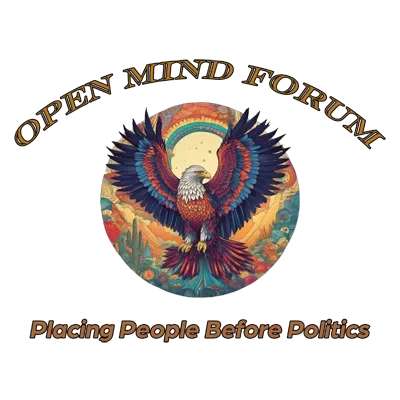What Makes it Relevant Today?
Introduction
Hegel’s dialectic, a philosophical method from the 19th century, remains remarkably relevant in our world today. This dialectic process, often simplified as “thesis, antithesis, and synthesis,” offers a way to approach conflict, change, and growth by seeking resolution through merging opposites. Unlike ordinary debate, Hegel’s dialectic finds new meaning in contrasts, showing how opposing ideas can merge into a more advanced truth. Though sometimes complex, his insights shape how we interpret social change, politics, personal growth, and even business strategies in the 21st century.
Understanding Hegel’s Dialectic
To grasp why Hegel’s dialectic matters, it’s important to understand the basics. Hegel developed his dialectical method to reveal the ways ideas evolve. Each idea or “thesis” encounters an opposing idea or “antithesis,” leading to a synthesis—a new idea that incorporates aspects of both. The dialectical method reflects life’s nature: nothing remains static. His perspective on evolution in ideas provides a way to look at

growth, struggle, and synthesis in our lives and societies.
Hegel saw this process as not merely intellectual but as reflecting a universal pattern of development. Political revolutions or philosophical breakthroughs, for example, can embody this dialectic as people challenge the status quo, producing new ways of thinking and organizing society. Understanding the dialectic offers insight into complex social phenomena where opposing forces lead to growth.
Why Hegel’s Dialectic Matters in Modern Life
In our polarized world, Hegel’s dialectic feels relevant because it models how opposing views can come together constructively. Unlike debates focused on winning, Hegel’s dialectic emphasizes integration. This principle can inform approaches to resolving political division, embracing diversity, and fostering inclusivity. For example, in democratic societies, we often see competing political ideas (left and right) as a standoff. But Hegel’s dialectic suggests that both sides could contribute to a more nuanced, integrated solution—a synthesis that draws on the strengths of each side.
Modern discussions on climate change also echo Hegel’s approach. Initially, industry (thesis) and environmentalism (antithesis) seemed at odds. Today, concepts like “green technology” offer a synthesis where industries adopt sustainable practices, showing how both forces evolve into a unified approach to address global challenges. Hegel’s dialectic invites us to see opposition not as something to avoid but as a force to harness toward progress.
Hegel’s Dialectic and Personal Development
On a personal level, Hegel’s dialectic speaks to individual growth. Facing opposing values or beliefs within oneself can lead to deeper self-awareness. For instance, someone pursuing a career may encounter a conflicting urge for work-life balance. By synthesizing these desires, they might find a unique approach to their career that prioritizes well-being. Hegel’s dialectic encourages us to face contradictions within ourselves and see them as opportunities for transformation.
In therapy and personal development, Hegel’s dialectic appears when clients reconcile conflicting thoughts and feelings. Psychologists often help clients integrate different parts of their identity, aligning with Hegel’s view that growth involves confronting internal contradictions. Through this process, individuals may arrive at a sense of wholeness, where once-opposing elements of their personalities coexist harmoniously.
Critical Perspectives on Hegel’s Dialectic
Despite its utility, Hegel’s dialectic has attracted critique. Some argue that it oversimplifies conflict and resolution, implying an inevitable harmony that may ignore ongoing inequalities. Critics like Karl Popper challenged Hegelian thinking, suggesting that it can justify authoritarianism by implying that historical conflict leads to progress, no matter the cost. Others question the dialectic’s complexity, feeling that it’s too abstract to apply to concrete situations (Popper, 2013).
Supporters, however, argue that Hegel’s dialectic remains vital because it frames conflict as an opportunity rather than a problem. Philosopher Charles Taylor, for example, notes that Hegel’s dialectic doesn’t impose solutions but highlights change as an organic part of life (Taylor, 1975). Such interpretations suggest that the dialectic doesn’t force unity but promotes growth through understanding differences.
Hegel’s Dialectic in Business and Technology
Hegel’s dialectic also influences business strategies and technological innovation. In business, it often appears as “disruptive innovation.” Traditional models (thesis) face new technologies or practices (antithesis) that seem incompatible. Over time, industries synthesize these changes, creating innovative models that serve wider audiences. For example, the shift from in-person to online services combined traditional business practices with technological advances, resulting in hybrid models that have become the norm.
The tech industry’s embrace of agile development practices also mirrors Hegel’s dialectic. Agile frameworks encourage constant change and improvement, integrating feedback from each project phase into the next iteration. This synthesis of critique and adaptation creates rapid progress, demonstrating how the dialectic underpins not just philosophy but also pragmatic, everyday applications.
Conclusion: The Lasting Relevance of Hegel’s Dialectic
Hegel’s dialectic remains relevant because it provides a pathway for dealing with contradictions and finding constructive resolutions. Whether applied to social conflicts, personal growth, or business innovation, the dialectic encourages open-mindedness and adaptation. It serves as a reminder that progress often emerges not from avoiding conflict but from engaging with it.
In our polarized world, Hegel’s dialectic inspires us to see opposition not as failure but as a catalyst for growth. This perspective encourages critical thinking and integration, showing how even seemingly incompatible ideas can contribute to a richer, more unified understanding.
Sources Cited
– Popper, K. (2013). The Open Society and Its Enemies. Routledge.
– Taylor, C. (1975). Hegel and Modern Society. Cambridge University Press.
Suggestions for Further Reading
- Taylor, C. (1975). Hegel and Modern Society. Cambridge University Press. – An in-depth exploration of Hegel’s relevance in modern society.
- Pinkard, T. (2000). Hegel: A Biography. Cambridge University Press. – A comprehensive biography that contextualizes Hegel’s ideas.
- Harris, H. S. (1983). Hegel’s Development: Night Thoughts (Jena 1801–1806). Oxford University Press. – Offers a deeper look into Hegel’s formative years and intellectual growth.
- Singer, P. (1983). Hegel: A Very Short Introduction. Oxford University Press. – An accessible guide to understanding Hegel’s key concepts.
- Marcuse, H. (1941). Reason and Revolution: Hegel and the Rise of Social Theory. Humanities Press. – Explores Hegel’s impact on critical social theory.
- Kaufmann, W. (1966). Hegel: Reinterpretation, Texts, and Commentary. University of Notre Dame Press. – Provides reinterpretations of Hegel’s work.
- Pippin, R. (1999). Modernism as a Philosophical Problem: On the Dissatisfactions of European High Culture. Wiley. – Discusses Hegel’s influence on modernism.
- Pinkard, T. (1996). Hegel’s Phenomenology: The Sociality of Reason. Cambridge University Press. – Analyzes the social aspects of Hegel’s philosophy.
- Wood, A. W. (1990). Hegel’s Ethical Thought. Cambridge University Press. – Examines the ethical implications of Hegel’s ideas.
Disclaimer: The images and videos in this post are AI-generated creations, intended purely for illustrative and conceptual purposes. They are not real-life representations and should not be interpreted as such. Their sole purpose is to offer a visual means of exploring the topics discussed in this post.




